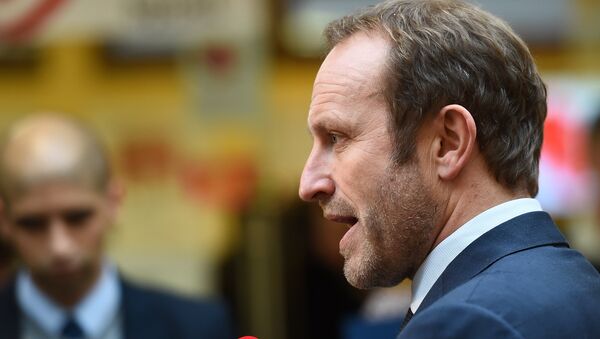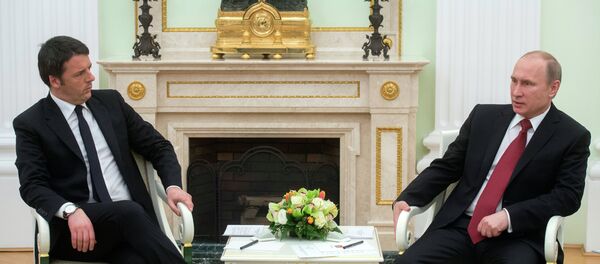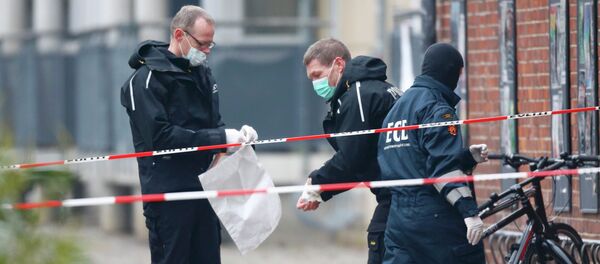The fate of the EU restrictions has been much discussed recently, as the first of several rounds of anti-Russia sanctions expires in March. European leaders stand divided on the issue, with the leaders of France and Italy being more in favor of relief than their German and British counterparts.
"Denmark has been in support for the sanctions. We still are. But we are in support of deescalating the sanctions, if the situation on the ground hopefully changes for the better," Foreign Minister Martin Lidegaard told Sputnik.
The minister added that sanctions have been a necessary reaction from the international community, given the Western view on the situation in Ukraine.
Claiming that Russia bears responsibility for the Ukrainian crisis, the European Union, alongside a number of western partners, has introduced several rounds of sanctions against Russia.
Moscow has firmly denied any involvement in Ukraine's internal conflict, calling for inter-Ukrainian dialogue and deeming the sanctions counterproductive.
Denmark has very good relations with Russia in regard to the Arctic, though the country holds a very different opinion of Russia over the Ukrainian crisis, Martin Lidegaard said.
“Everybody knows that the EU and also Denmark have [a] very different opinion about what is going on in Ukraine with Russia. And we have a conflict on it with Russia," the minister said
Despite the tensions on Ukraine, Russian and Denmark have no conflict on Arctic issues, Lidegaard added.
"Actually we have a very good cooperation with Russia in the Arctic, we have managed to make an agreement, and we are going in [the] future to draw the lines and the borderlines in the Arctic Ocean,” he said.
The European Union has imposed several rounds of sanctions against Russia for its alleged role in the Ukrainian crisis, a role that Russia has denied.
“Even though we disagree in other parts of the world, we can keep and respect good cooperation in the Arctic,” Lidegaard added.
The minister said that Denmark is active in the Arctic primarily because Greenland is part of the Danish Kingdom.
“Most of all our main focus [in the Arctic] right now is to try to increase investments, and economic activities, so that the economy of Greenland can grow and be stronger but of course in respect for the nature, the climate and also our partners in the Arctic,” he added.
Denmark has increased humanitarian aid to Ukraine and will continue to do so, in spite of major economic challenges faced by the country, Denmark's Foreign Minister said.
In mid-February, Denmark pledged to increase its humanitarian assistance to the war-torn country and to allocate an additional $1.5 million through the UN Refugee Agency to help persons who were internally displaced because of the crisis in Ukraine. According to the Danish foreign ministry, there are up to one million civilians in need of assistance.
The minister added that in the current economic situation it is particularly hard for Ukrainians to help internally displaced people "simply because they do not have money."
Denmark will do everything it can to counter homegrown religious extremism and to prevent the radicalization of young people in the country, Martin Lidegaard told Sputnik.
Denmark has the second-highest number of nationals acting as mercenaries in the Middle East per capita in Europe, after Belgium. An estimated 110 Danish Muslims have traveled to Syria and Iraq to fight alongside jihadist groups, and around half of those have returned to the country, according to foreign ministry estimates.
"We try to engage in the families, we try to engage with the young [people] themselves. If we are given a hint that a young man or woman is at risk of getting extreme, we are trying to … move them to another place and give them education and training to avoid it [radicalization]," Lidegaard told Sputnik in an exclusive interview.





